"EU imposes tariffs on China, BMW: This approach is unfeasible and undermines the principles of free trade"
![]() 10/09 2024
10/09 2024
![]() 584
584
Recently, the EU held a vote on whether to impose a five-year countervailing duty on electric vehicles imported from China. According to a statement from the European Commission, the proposed tariff measures on battery-electric vehicles imported from China have received the necessary support from EU member states.
This outcome implies that the European Commission will impose tariffs of up to 45.3% on Chinese automotive companies such as BYD, Geely, and SAIC Motor.
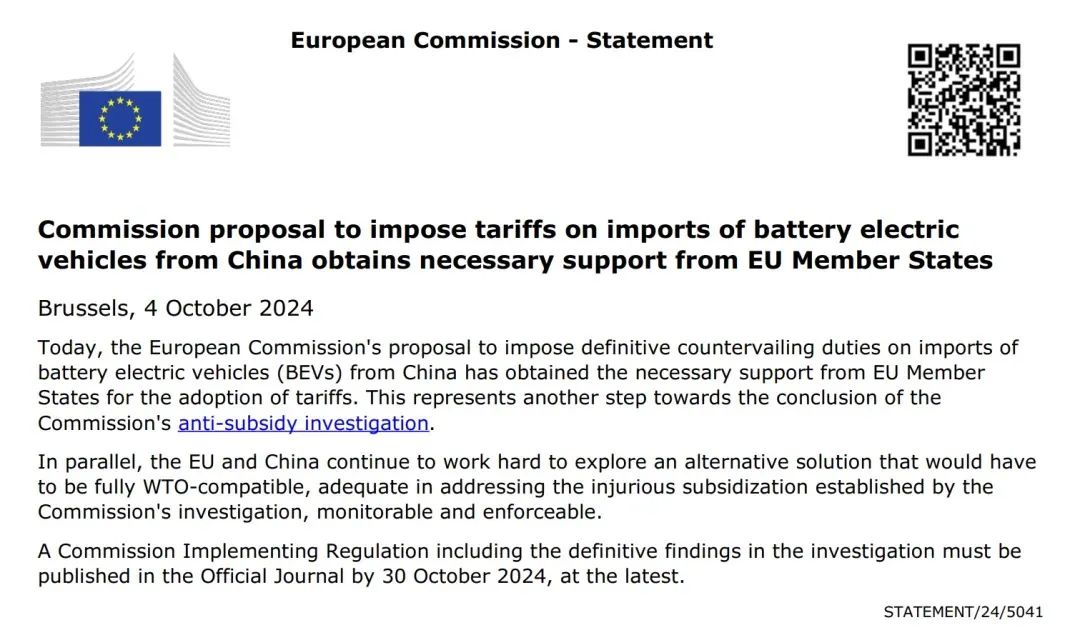
On October 6, BMW Group issued a statement pointing out that the October 4 vote was crucial for the European automotive industry. There is an urgent need for the European Commission to quickly reconcile with China to avoid unproductive trade conflicts. Germany's opposition to the tax increase provides an opportunity to resolve disputes through negotiations.
Imposing tariffs on Chinese electric vehicles is unfeasible and will not only fail to enhance the competitiveness of European automakers but may also harm the interests of global businesses. Additionally, the tax increase will limit European consumers' electric vehicle options, hindering the low-carbon progress of European transportation. Furthermore, this move seriously violates the principles of free trade advocated by the EU.

Automotive companies collectively voice opposition
In this vote, ten member states voted in favor, five voted against, and the remaining member states abstained, marking the formal adoption of the resolution.
However, there is a misconception that the EU will impose tariffs because Chinese electric vehicles are sold at low prices in Europe, potentially crowding out market share from European automakers.
According to previous information released by the European Commission, SAIC Motor, Geely, and BYD may face additional tariff rates of 35.3%, 18.8%, and 17%, respectively. Tesla applied for individual examination and will face an additional tariff rate of 7.8%.
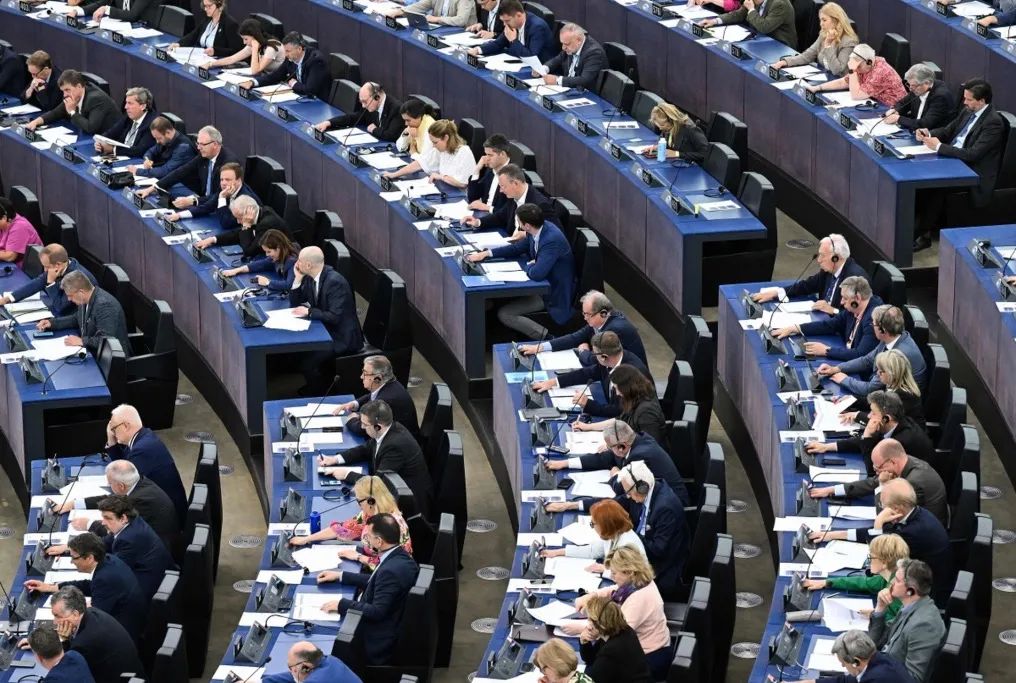
The European Commission noted that these tariffs will be imposed in addition to the standard 10% automobile tax in the EU. Therefore, SAIC Motor will face a total tariff of 45.3%, while Geely and BYD will face total tariffs of 28.8% and 27%, respectively. Tesla, on the other hand, will face a total tariff of 17.8%.
This proposal has sparked widespread controversy since its adoption. To date, organizations such as China's Ministry of Commerce and the European Union Chamber of Commerce in China have expressed their "firm opposition." Additionally, multiple automotive companies have also expressed opposition and dissatisfaction with the decision of the European Commission.
According to Xinhua News Agency on October 4, China's Ministry of Commerce spokesperson emphasized in response to the EU vote passing the final draft of the electric vehicle countervailing case, "China firmly opposes the unfair, irregular, and unreasonable protectionist practices adopted by the EU in this case, as well as the imposition of countervailing duties on Chinese electric vehicles."
On the same day, the European Union Chamber of Commerce in China also expressed strong dissatisfaction with the EU's trade protectionist measures, while the China Council for the Promotion of International Trade similarly stated its firm opposition.

An industry expert interviewed by Autotalk said, "Another motivation behind the EU's move is to balance its relations with China and the United States. Against the backdrop of a growing protectionist global economy, the EU is attempting to balance its relations with both China and the United States by imposing tariffs. It aims to maintain consistency with the Atlantic Alliance while considering China's pivotal role in the electric vehicle supply chain. Therefore, its tariff strategy is intended to weaken the price competitiveness of Chinese electric vehicles in Europe rather than completely exclude them from the market."
EU-China negotiations may continue
Following the vote to impose high tariffs on Chinese electric vehicles, German automotive giants reliant on the Chinese market, such as Mercedes-Benz and BMW Group, have expressed their opposition, disappointment, strong dissatisfaction, and the belief that the move is a mistake.
In a statement on October 6, BMW Group stated bluntly that the EU's imposition of additional tariffs on Chinese electric vehicles is "completely unfeasible." This move will not only fail to enhance the competitiveness of European automakers but may harm the interests of global businesses.
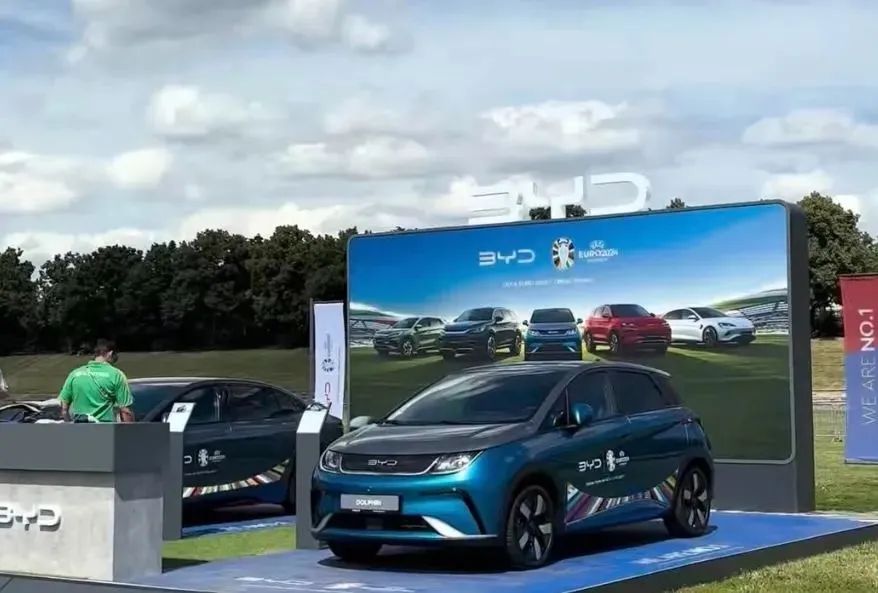
Mercedes-Benz also stated in a statement the following day that imposing countervailing duties is "wrong" and will weaken the long-term competitiveness of the entire automotive industry. It called on the EU to maintain dialogue with China and seek win-win solutions.
Volkswagen Group also urged the EU to avoid trade conflicts through more negotiations. Its CEO Herbert Diess warned that retaliatory tariffs from China could inflict significant losses on European automakers and suggested leveraging Chinese investments in the EU to circumvent tariffs.
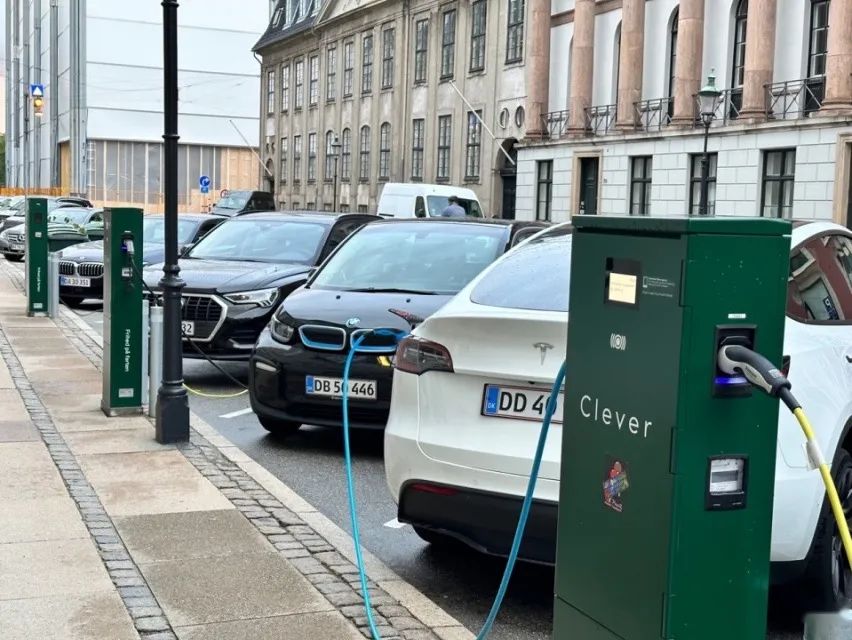
It is important to note that Germany voted against this measure in the vote, primarily due to the significant business operations of its automakers in the Chinese market. Nearly one-third of their sales last year came from China, making them highly vulnerable to potential Chinese countermeasures. In contrast, the automotive industries in France and Italy supported the imposition of tariffs.
According to European data, ten European countries voted in favor of the measure, representing 45.99% of the EU's population. France was one of the countries actively promoting related measures and had previously pushed for the EU to conduct a so-called "anti-dumping investigation" into Chinese electric vehicles.
Additionally, nine countries, including Denmark, Ireland, and Italy, voted in favor, while Germany, Hungary, Malta, Slovenia, and Slovakia voted against. However, since these five countries represent only 22.65% of the EU's total population, they failed to reach the threshold to overturn the bill.
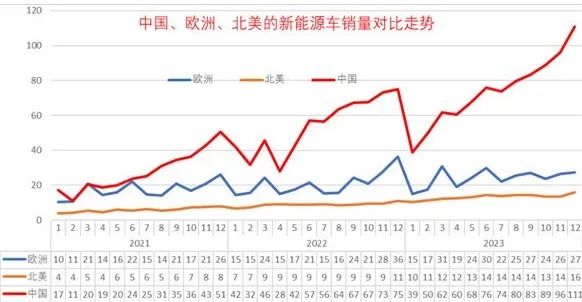
"Opposition mainly comes from European automakers, labor unions, and consumers. German Finance Minister Christian Lindner warned against triggering a trade war with China, believing that resolving issues through negotiations is more appropriate. European automakers such as Volkswagen, BMW, and Mercedes-Benz have also stated that imposing tariffs is a 'wrong approach' for the European automotive industry. Furthermore, multiple EU member states voted against or abstained from the vote." The aforementioned industry insider said.






